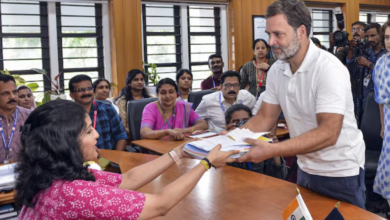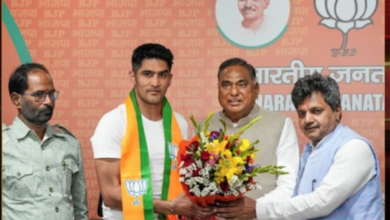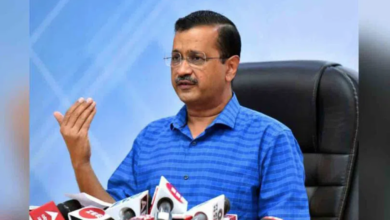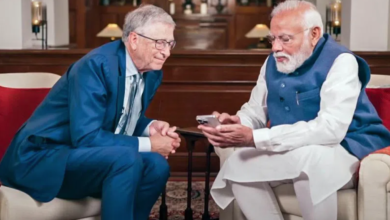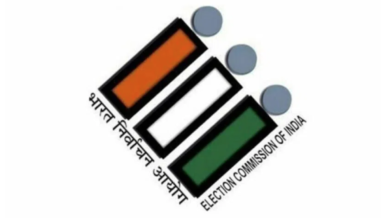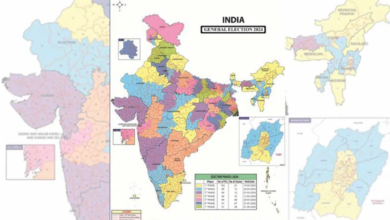‘He should have been more careful with his words’: What Surat court said while dismissing Rahul Gandhi’s appeal

Dismissing Congress leader Rahul Gandhi’s appeal for staying his conviction in the criminal defamation case, the Surat district and sessions court on Thursday said that Gandhi’s counsel failed to prove that “irreversible and irrevocable damage would be caused to the appellant (Gandhi)” if the conviction was not stayed. Disagreeing with the objections raised by Gandhi’s counsel to the maintainability of BJP MLA Purnesh Modi’s complaint, the court felt that the “derogatory” remarks “certainly harmed his (Purnesh Modi’s) reputation” and caused him “pain and agony”.
Additional sessions judge Robin P Mogera, who pronounced the order in open court, said that Gandhi was an MP and president of the second largest political party and “he should have been more careful with his words which would have large impact on the mind of people”.
Referring to the trial court’s verdict, the court said that “it transpires that the appellant had made certain derogatory remarks against the Hon’ble Prime Minister Shri Narendra Modi in general public and further compared the persons having Modi surname with thieves and the complainant is also having surname of Modi”.
Saying that Purnesh Modi was an ex-minister involved in public life, the court said that “such defamatory remarks would have certainly harmed his reputation and caused him pain and agony in society”. “For such reasons, I do not agree with the objections raised by Mr Cheema, lead senior advocate, with regard to maintainability of the complaint,” the court said. Supreme Court lawyer Ranjeet Cheema had represented Gandhi in the sessions court on April 13, when the case was last heard.
The court further held that there cannot be defamation against a community as such. “Community as such may not have a reputation, but the reputation will only be of individual members. When the defamatory matter affects each and every member of an ascertainable class or group each of them or all of them could set the law in motion,” the court said.
Gandhi was convicted on March 23 by the court of Chief Judicial Magistrate (CJM) H H Varma and sentenced to two years simple imprisonment, which is the maximum punishment for criminal defamation, with regards to the ‘Modi surname’ remarks he made at an election rally on April 13, 2019, in Kolar, Karnataka. Gandhi was immediately suspended from Parliament after his conviction. The CJM court had suspended the sentence for 30 days to allow him to appeal in a higher court.
The court was of the opinion that Gandhi had “not made out any case to suspend the conviction recorded against him” and stated that the Supreme Court had, in a number of pronouncements, held that the powers accorded under Section 389 (1) of CrPC to suspend/stay the conviction “is required to be exercised with caution and circumspection and if such power is exercised in a casual and mechanical manner, the same would have serious impact on the public perception on the justice delivery systems and such order will shake public confidence in judiciary”.
The order, made public on Thursday, said: “I hold that the ld. counsel for the appellant has failed in demonstrating that by not staying the conviction and denying an opportunity to contest the election on account of disqualification u/s. 8(3) of the Representation of the People Act, 1951 an irreversible and irrevocable damage is likely to be caused to the appellant (Gandhi)”.
On handing out the maximum sentence to Gandhi, the court said, “…it would be worthwhile to observe that the appellant was not an ordinary person and was sitting MP, connected with public life. Any word spoken by appellant would have large impact in mind of common public. The alleged speech given by appellant on 13/4/2019 was during election campaign. Moreover, high standard of morality is expected from a person like appellant and the Ld. trial court had inflicted sentence, which was permissible in law. Further, it appears from record that all opportunities were accorded to appellant for cross-examining the witnesses and hence I do not agree with the contentions of Ld. senior advocate Mr. Cheema about appellant being deprived of fair trial”.

